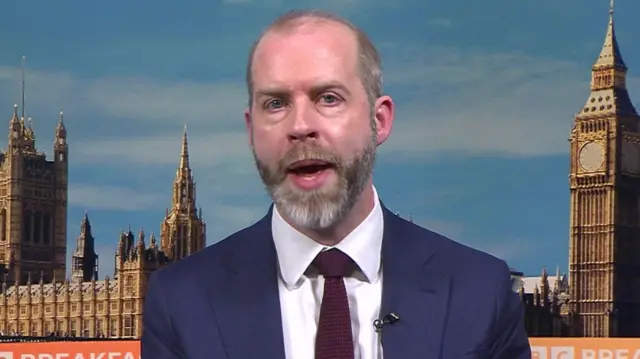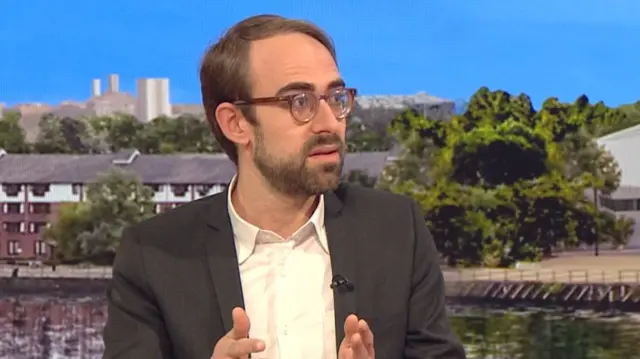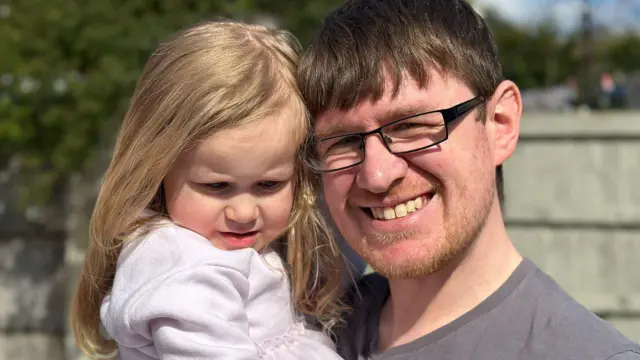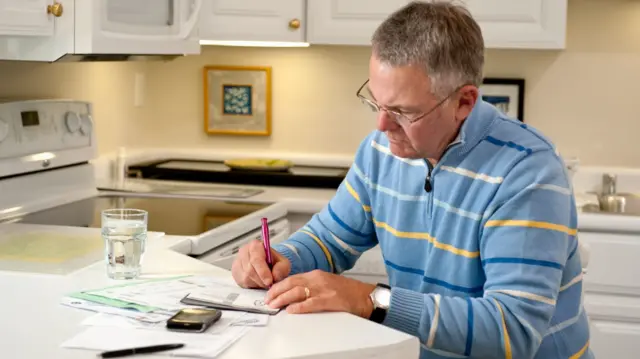Every country will be hit by Trump's tariffs tomorrow - Reynoldspublished at 07:56 British Summer Time 1 April
Reynolds is quizzed now about US President Donald Trump's global tariffs, which he will announce tomorrow.
(Details have not been confirmed - but the US could soon charge extra taxes on every product imported into the US).
Reynolds is asked if the UK could be exempt - certain "carve-outs" for UK goods have been discussed. But the minister says it appears "every country in the world will be subjected" to the new tariffs.
The UK and the US have a fair and balanced trading relationship, he adds, and it's down to the US if they want to do a deal.
"The work we have done gives us the best chance of finding a way through that," he says.
Asked about retaliatory tariffs, Reynolds says: "I have to keep all options on the table."
When pressed on whether the UK should be tougher - citing the EU and Canada who have announced retaliatory tariffs - Reynolds says "a strong response to this is to pursue your own national interest," which in the UK's case is a deal with the US.







